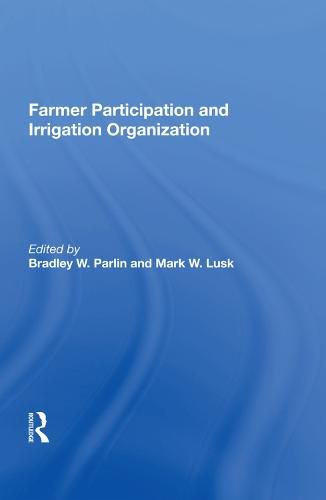Readings Newsletter
Become a Readings Member to make your shopping experience even easier.
Sign in or sign up for free!
You’re not far away from qualifying for FREE standard shipping within Australia
You’ve qualified for FREE standard shipping within Australia
The cart is loading…






Irrigation projects consistently fail to meet their projected performance in hydrologie, agronomic, or economic terms. Too often the state bureaucracy seeking to develop irrigation places the blame for such failure on the project beneficiaries-farmers. Citing problems such as water theft, fee non-payment, and the taking of irrigation water out of turn, analysts fail to examine the broader institutional and organizational factors that shape the behavior of farmers. Moreover, little emphasis is given to the lack of accountability of irrigation agency bureaucrats. This book explores the organizational and institutional factors that lead to poor project performance, but more important, it identifies those managerial factors that have repeatedly been shown to contribute to project success. Taking rational choice theory as its starting point, the book elaborates a perspective that can be used to democratize, decentralize, and privatize irrigation organizations. Case examples from around the world are used to illustrate the interrelationships between project performance, irrigation organization, and farmer participation.
$9.00 standard shipping within Australia
FREE standard shipping within Australia for orders over $100.00
Express & International shipping calculated at checkout
Irrigation projects consistently fail to meet their projected performance in hydrologie, agronomic, or economic terms. Too often the state bureaucracy seeking to develop irrigation places the blame for such failure on the project beneficiaries-farmers. Citing problems such as water theft, fee non-payment, and the taking of irrigation water out of turn, analysts fail to examine the broader institutional and organizational factors that shape the behavior of farmers. Moreover, little emphasis is given to the lack of accountability of irrigation agency bureaucrats. This book explores the organizational and institutional factors that lead to poor project performance, but more important, it identifies those managerial factors that have repeatedly been shown to contribute to project success. Taking rational choice theory as its starting point, the book elaborates a perspective that can be used to democratize, decentralize, and privatize irrigation organizations. Case examples from around the world are used to illustrate the interrelationships between project performance, irrigation organization, and farmer participation.